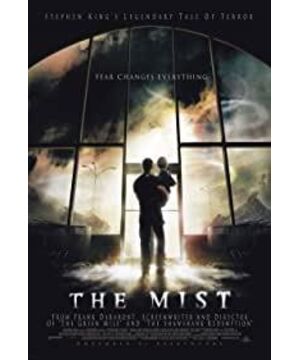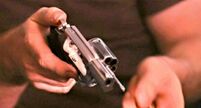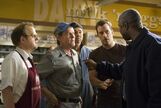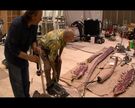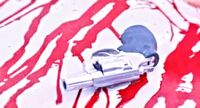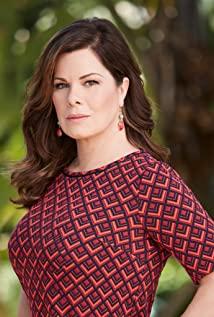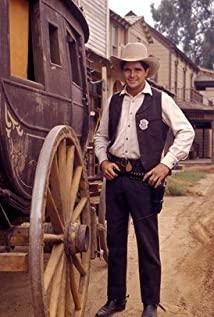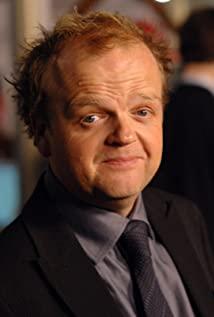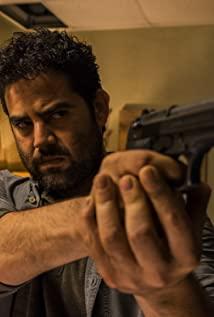● Norton, a foreigner lawyer: Immigrant culture and identity awareness
He is a black man and a foreigner at the same time. A sense of identity plays a role in his preconceived notions of other people as malicious and aggressive. This sense of inferiority is rooted in his heart, he cannot accept the kindness of the locals, he cannot stand on the same side as the locals, and he will defect at any time.
The same mentality appeared in those two mechanics. While repairing the generator, they asked Norm, a young man, to be the "punch", risking the fog to open the warehouse's roller shutters. David tried to stop them, but aroused their strong resistance to "intellectuals".
Of course, this does not mean that those who are resisted by a sense of identity necessarily occupy the moral high ground. In the film, when local David and the maintenance workers decide to tell him about the discovery of the "terrible tentacles", they start by referring to him as "that outlander". Once he showed a trace of disbelief and counterattack, they immediately erected thorns all over their bodies, and began to turn over old accounts and retort, which further rigidified the relationship between the two sides.
● Mechanic Jim: A typical ordinary person.
He is not a person who believes that there is "something" in the fog. He rashly asked Norm to open the roller shutter of the warehouse. Norm died because of this. He is sincerely sorry. As a result, he began to believe in David, trying to convince more people of the dangers of the fog, and obeying David's command and action. During this period, because of his inner identity consciousness, he fought with David and Norton.
He used to despise and laugh at the goddess, thinking she was talking nonsense. But when he saw the dense "spider" monsters in the pharmacy, fear made him suspicious. After returning to the supermarket, he quickly joined the group of goddesses and became one of the most fanatical believers, even attacking David and his group of "different people". Christian" behavior.
Jim's performance is the specimen of most of us, with little will and no will, in a critical situation, swaying like grass on the wall and desperate like a headless fly.
● Beautiful cashier Sally: Cherish the moment
Sally's brief dialogue with Jessup, a military police officer, in the storage room is a rare warm plot in the whole film. The girl in the lens has a face like a peach blossom, her eyes are like water, and she looks charming. But a few minutes later, she was stung by a "locust" monster with a scorpion-like poisonous tail, and her death was extremely ugly.
Cherish it, you don't know which second will be the end of your life.
● Gendarmerie Private Jessup:
The identity of the specious "sinner" Jessup is embarrassing. The people see them as the faction in the mountains, one of the creators of the fog; he himself does not agree with this division, thinking that he belongs to the people (and he is also a local in the town). And his other military police companions committed suicide by hanging themselves together because they thought they were related to the fog and felt sorry for the people.
Jessup had a chance to confess to his beloved Sally because of the fog, and then witnessed the tragic death of his beloved. Despaired, he went to the pharmacy fearlessly, and was fortunate enough to return to the supermarket, only to find that he was being "The believers, or those who are still "sober" like David) were classified as the culprits of this disaster, and were finally stabbed by a fanatical believer and became the sacrifice of the "blood sacrifice".
Losing his identity, unable to protect his beloved girl, and being killed by the people he swore to protect... a tragic private.
● The cause of the fog: nature and humans
The fog is caused by the Arrowhead Project, a secret plan going on in the mountains. The commander and executor of the plan do not appear in the film, we only see that the unwitting people are attacked by a large number of terrible monsters, and these monsters "from another space" are precisely the experiments of another small group of their kind. Caused.
In the face of nature, human beings, regardless of whether they are good or bad or beliefs, bear the consequences as a whole. Conversely, it is only human beings who can carry out rescue operations. But to be more specific, the government and the military led the experimental plan and failed. The government and the military came to collect the stalls, and all the people had to do was to be frightened and injured.
On the other hand, human beings are bound to suffer unpredictable catastrophic consequences because of their own ignorance.
● Moderate majority: "empathy" through the glass wall
Most people do not come into contact with the real fog, and they are already lost across the glass curtain wall of a supermarket. It is for the mean, not stupid, after all, after witnessing a terrible monster, everyone may feel the same, and be blinded by fear.
Because of this fear, they briefly believed in the "Wrath of the Lord" theory of the goddess; after the goddess died, David and his group of "pagans" also left. They lost their leaders and enemies at the same time. They may stay in the supermarket and wait for the armored team to rescue them. It is also possible to walk out of the supermarket and into the fog, and the ending is open.
In reality, to manipulate a person's position, sometimes it is only necessary to set up a "glass wall" for him, so that he can see the fate of other similar people, and his heart can be swayed.
● Superstition Mrs. Carmody: The End of Fanatics
This film is slightly ironic about the status of religion. Religion is manifested as the worship of supernatural beings derived from phenomena that the brain cannot understand, which is biased towards atheists. The goddess blames the appearance of the monster on human disrespect to the "Lord", rather than a direct result of the Arrowhead Project experiments, which is a common understanding of "superstition".
But I have to admit that the goddess's "death prophecy" is surprisingly accurate, and the recited scriptures seem to be in line with reality. There was even a plot where when the "locust" monster stayed on her body, she expressed her willingness to sacrifice her life to the Lord with a pious face, and eventually the "locust" flew away, and she was the only one who was not hurt by the monster. These coincidences imply that some phenomena that science cannot explain do exist.
The goddess was a devout to paranoid believer from beginning to end, and finally died under the gun of Ollie, who represented atheism or paganism. If it hadn't been shot by Ollie, the goddess would probably lead the people to destroy David's group. Therefore, even among people of the same kind and different beliefs, it is life and death, and there is no real right or wrong.
The role of faith is not to lead you in the right direction, but to convince you, or even misbelieve, that you are going in the right direction.
● Ollie, the supermarket employee with glasses: the crime and punishment for killing the same kind
Ollie is a counter-attack character. Before the first head-to-head confrontation with the "Tentacle" monster, he neither helped the protagonist David nor the other two maintenance workers. His importance rose with the advent of the pistol, and as a former state champion in a spot-shooting program, he became the only man to carry a gun. His sharpshooter "performance" includes a perfect match with David, two shots to deal with a "pterodactyl" monster broke into the supermarket, the limelight almost overshadowed the hero David. When the goddess incited the people to sacrifice David's son to the "Lord", Ollie also used two bullets to silence the goddess forever.
The shooting was almost premeditated, smearing his hands with the same kind of blood. Even if Ollie later explained that he didn't intend to do it, he still couldn't escape the blame. The sin setting of killing the same kind made him quickly torn by the "tentacle" monster.
● Broken father David: No one is
invincible with the halo on the head of the protagonist of God. What he said is always right, and what he has to do will always succeed. However, in this film, we see that David's willful actions cost the lives of many innocent people.
He wants to convince the stranger Norton, but he drives him out of the supermarket to die; he wants to light a torch, but burns an innocent person; Mechanic Jim); he was driving out of town with seven of his "confidants" and lost three of them. After exhausting all the gasoline, he personally shot and killed the other four people in the car, the old man, the woman and the child (his own son) because of his wrong judgment. A few minutes later, as the rescue armored team slowly drove past him, our hero was completely devastated.
This is a subversion of individual heroism, no one is absolutely right, no one is a god.
● Saved Mothers: The Courage of a Mother
The only one who appears to have escaped is the mother in the title sequence, worried that her eight-year-old daughter won't be able to take care of her younger son. Before leaving, she turned to everyone in the supermarket for help, but people in shock, even our heroic David, averted her gaze in horror. Finally, she cursed "I wish you all rot in hell" angrily, and walked into the mist without looking back.
At the end of the film, she stood on the rescue car with her two children in her arms, staring coldly at the dejected Daid.
However, it was a fluke rather than motherhood that saved her. It is worthy of praise that she took a step for her own child whose life and death are uncertain, which is the courage of a mother.
View more about The Mist reviews


